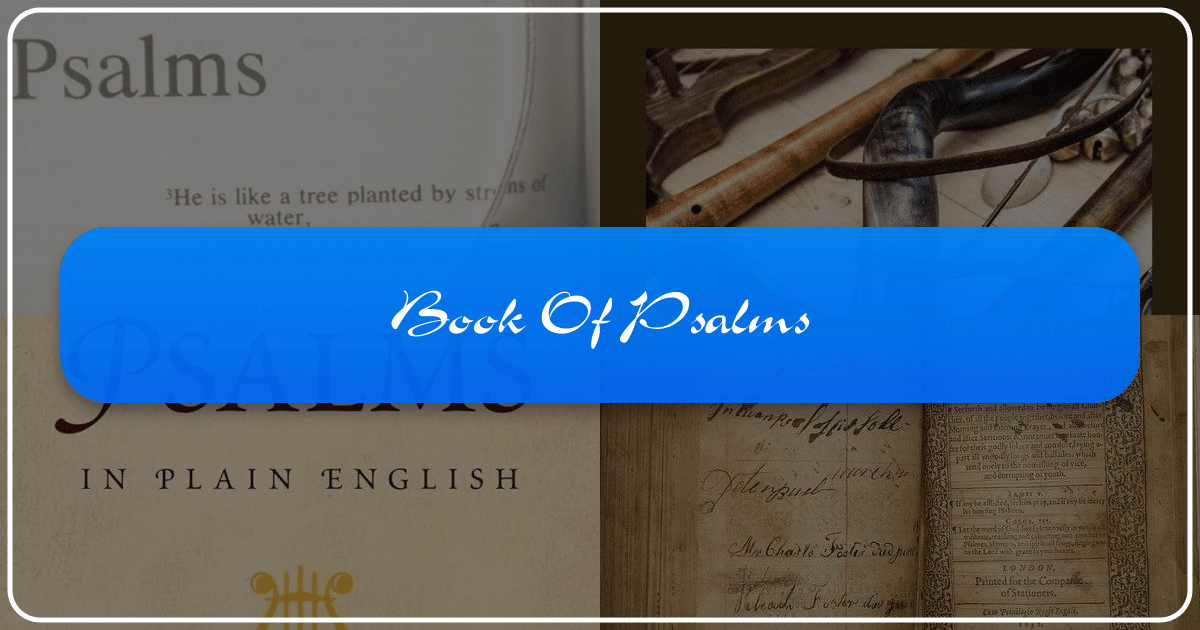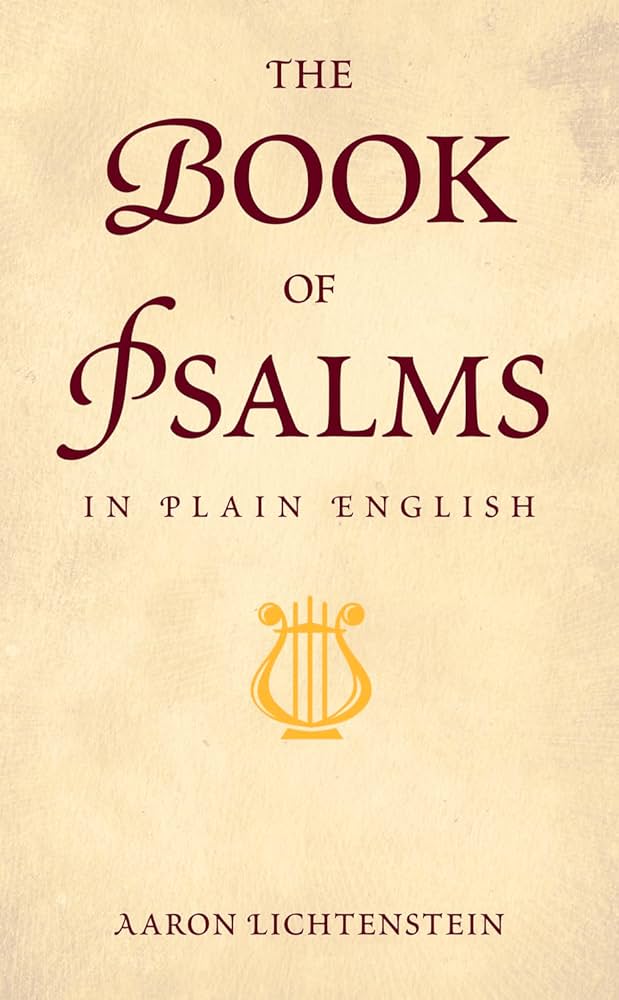The Book of Psalms: A Deep Dive into Scripture and its Enduring Impact

The Book of Psalms, a central text within the Hebrew Bible and Christian Old Testament, stands as a collection of 150 poems expressing a vast spectrum of human emotion and experience, all framed within a relationship with God. Its enduring influence extends far beyond religious circles, impacting literature, music, and culture for millennia. This exploration delves into the Book of Psalms, examining its multifaceted nature through various lenses, from its literary genre and historical context to its continuing cultural impact.
I. The Book of Psalms: A Literary and Historical Perspective
The Book of Psalms is not a single work authored by one person, but a collection of hymns, prayers, and poems compiled over centuries. Its diverse authorship and composition across various periods contribute to its rich tapestry of styles and themes. The psalms are categorized into different genres, each with distinct characteristics and purposes:

A. Genres of Psalms
The psalms encompass several distinct literary forms, reflecting the complex emotions and experiences of the psalmists:
-
Hymns of Praise: These psalms celebrate God’s majesty, power, and goodness. They often employ vivid imagery and metaphorical language to express awe and adoration. Examples include Psalm 100 (“Make a joyful noise unto the Lord”) and Psalm 150 (“Praise ye the Lord”).
-
Lament Psalms: These express personal or communal grief, suffering, and despair. They often articulate feelings of abandonment, injustice, and the overwhelming weight of hardship. The raw honesty and vulnerability of these psalms resonate deeply with readers facing similar challenges. Psalm 13 (“How long, O Lord?”) and Psalm 22 (“My God, my God, why have you forsaken me?”) are powerful examples.
-
Thanksgiving Psalms: These express gratitude and praise for God’s deliverance, blessings, and faithfulness. They often recount specific instances of God’s intervention and faithfulness, serving as testimonies to his power and love. Psalm 107 (“Give thanks to the Lord, for he is good”) and Psalm 136 (“O give thanks unto the Lord; for he is good”) are characteristic examples.
-
Imprecatory Psalms: These express anger, wrath, and a desire for divine judgment upon enemies or oppressors. While potentially challenging for modern readers, these psalms reveal the full spectrum of human response to suffering and injustice, highlighting the honesty with which the psalmists engage with their faith. Psalm 35 (“Plead my cause, O Lord”) and Psalm 137 (“By the rivers of Babylon”) are examples.
-
Royal Psalms: These celebrate the king of Israel as God’s anointed and depict the ideal ruler reflecting God’s reign. They often feature themes of justice, peace, and the establishment of God’s kingdom on earth. Psalm 2 (“Why do the nations rage?”) and Psalm 45 (“My heart overflows with a goodly theme”) are representative.
-
Wisdom Psalms: These offer reflections on life, wisdom, and the nature of God’s justice. They explore profound questions about human existence and the relationship between human actions and divine consequences. Psalm 1 (“Blessed is the man who walks not in the counsel of the wicked”) and Psalm 119 (a lengthy acrostic poem praising God’s law) embody this genre.
B. Historical Context
The Book of Psalms was not written in a vacuum. Its composition spanned centuries, encompassing various historical periods and social contexts within ancient Israel:
-
Davidic Psalms: Many psalms are attributed to King David (c. 1000 BCE), reflecting his personal experiences, struggles, and relationship with God. These psalms offer invaluable insight into the life and reign of this pivotal king.
-
Post-Exilic Psalms: Some psalms were written after the Babylonian exile (6th century BCE), expressing the pain of captivity, the hope of restoration, and the renewed faith of the exiled community. These provide a poignant record of perseverance and resilience in the face of adversity.
-
Various Authors: A significant number of psalms are anonymous, indicating the collective nature of their composition and their reflection of various periods and circumstances within Israelite history.
The historical context helps illuminate the meaning and significance of the individual psalms. The emotions expressed, the situations described, and the prayers offered all resonate with the particular historical events and experiences of their time.
II. Authors and Writing Styles of the Psalms
While many Psalms are anonymous, some are attributed to specific individuals, primarily King David, and others are linked to the sons of Korah or Asaph, suggesting priestly or levitical origins. The diverse authorship likely accounts for the variety of styles and approaches seen in the text:
A. Key Authors
-
King David: A significant portion of the Psalms are attributed to King David. His personal struggles, triumphs, and deep faith profoundly shaped many of the psalms’ emotional depth and spiritual insight. The themes of repentance, lament, and praise are prominent in Davidic Psalms.
-
Asaph, the Sons of Korah: These figures, identified in some Psalm headings, are believed to have been Levites involved in temple worship. The psalms attributed to them often reflect communal worship and the liturgical practices of the temple.
-
Anonymous Psalmists: Many Psalms are anonymous, suggesting a broader participation in their creation. Their anonymity underscores the universality of the themes and emotions expressed, allowing later generations to connect with them across cultures and time.
B. Writing Styles
The style of the Psalms varies across different genres, reflecting the diverse circumstances and emotions expressed:
-
Poetic Devices: The psalms make extensive use of poetic devices, including parallelism (the repetition of an idea in slightly different words), metaphors, similes, and imagery to convey deep emotional and spiritual meaning.
-
Musicality: Many Psalms have musical notations, suggesting that they were intended to be sung or accompanied by musical instruments. This musical element heightens the emotional impact and enhances their liturgical function.
-
Literary Structure: Psalms exhibit various structures, including acrostics (where the first letter of each line or verse spells a word or phrase), stanzas, and other forms that contribute to the poem’s artistic beauty and thematic coherence.
III. Educational Value and Life Lessons in the Psalms
The Book of Psalms offers profound insights into human nature and the spiritual journey:
A. Educational Value
The Book of Psalms offers:
-
Biblical Understanding: Studying the Psalms provides a deeper understanding of the Old Testament and its relationship to the New Testament. The Psalms are frequently quoted and alluded to in the New Testament, highlighting their theological significance.
-
Historical Insights: The Psalms provide invaluable historical insights into the lives, struggles, and faith of the ancient Israelites. The diverse perspectives within the book offer a rich tapestry of experiences that shed light on the human condition and the role of faith.
-
Literary Appreciation: The Psalms offer a sophisticated model of poetic language and structure. Their mastery of imagery, metaphor, and rhythmic patterns serves as a valuable resource for anyone interested in developing their understanding of literary devices.
B. Life Lessons
The Psalms provide practical guidance for navigating life’s complexities:
-
Honest Expression of Emotion: The Psalms demonstrate the importance of expressing our full range of emotions, both positive and negative, before God. This honesty fosters a deeper relationship with God and provides a framework for processing difficult feelings.
-
Prayer and Communication with God: The Psalms exemplify various forms of prayer, from praise and thanksgiving to lament and intercession. They model how to communicate with God in both joyful and sorrowful circumstances, demonstrating an open and honest dialogue with the divine.
-
Trust and Dependence on God: The Psalms illustrate the importance of trusting in God’s faithfulness and sovereignty, even amidst hardship and adversity. The repeated themes of God’s power, protection, and unwavering love encourage perseverance and hope.
-
Spiritual Growth and Transformation: Engaging with the Psalms fosters spiritual growth and transformation by encouraging reflection, contemplation, and an ongoing dialogue with God. The diverse experiences depicted in the Psalms offer opportunities for self-discovery and spiritual maturity.
-
Community and Shared Experience: The Psalms are frequently used in communal worship, reflecting their role in building community and fostering a sense of shared faith. The communal nature of many Psalms emphasizes the importance of belonging and shared experiences within a spiritual context.
IV. Cultural Impact and Legacy of the Psalms
The Book of Psalms’ profound impact extends beyond its religious significance, shaping culture in various ways:
A. Literary Influence
The Psalms have been a source of inspiration for countless writers and poets throughout history. Its powerful imagery, metaphorical language, and emotive expressions have profoundly influenced the development of Western literature.
B. Musical Adaptations
The musicality of the Psalms has led to numerous adaptations in various musical genres, from classical choral works to contemporary Christian music. Composers have drawn inspiration from the Psalms’ emotional depth and spiritual themes, crafting works that resonate with audiences across cultures and time.

C. Awards and Recognition
The Psalms, or works inspired by them, have garnered significant recognition. Translations of the Psalms have won prestigious literary awards, highlighting the literary significance of this ancient text. Furthermore, musical compositions inspired by the Psalms have earned critical acclaim.
D. Communities and Interpretations
The Book of Psalms has fostered diverse communities of faith and has been interpreted in myriad ways. This ongoing engagement with the text ensures its enduring relevance and promotes continued dialogue about its meaning and application in contemporary life. Its enduring presence in diverse religious traditions and its translation into countless languages serve as a testament to its continued power.

The Book of Psalms remains a powerful and relevant text, offering both spiritual insight and cultural significance. Its profound impact on literature, music, and the human spirit continues to this day, making it a text worthy of continuous study and reflection.